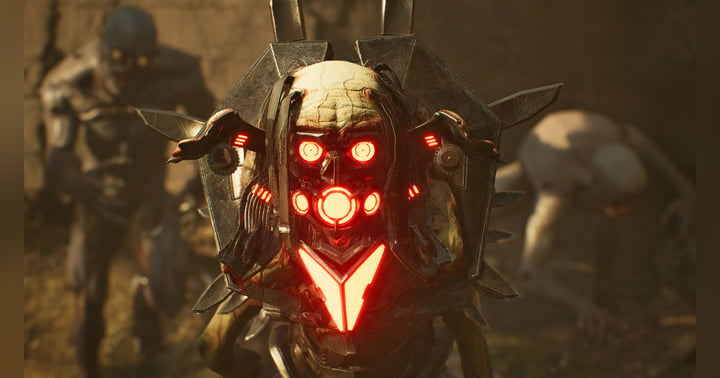Mortal Kombat 1 Highlights a Glaring Problem with Gaming DLC

The Era of DLC
Oh Mortal Kombat 1, what have you done?
For gamers, the allure of downloadable content (DLC) has become increasingly prevalent. Who doesn’t like offering additional features, levels, and characters beyond the base game? While DLCs can enhance the gaming experience, there's a growing concern that the gaming industry is exploiting them as a cash grab, undermining the value of the original purchase. What does $70 buy you now? Well, not the entire game it seems, and Mortal Kombat 1 only serves to prove that point.
The DLC trend began as far back as 1997 with PC games. During the time gaming was not the juggernaut it is today and the concept was mainly isolated to PC games which given the purpose of software and the internet still being on the rise, wasn’t a big thing. But as gaming consoles became plentiful and more started following the trend of the SEGA Dreamcast one of the first to have internet connectivity, it was only a matter of time before DLC reached every gamer’s doorstep. By the mid-2000s gamers everywhere could breathe new life into some of their favorite games as developers put out expansions (the term used before DLC) giving a second win to many games. What gamer would frown upon that? $10 to $20 for whole new levels and a new story, that was heaven.
So what changed? Companies began to see how eager gamers were to pay for the extra content and started rolling out other paid services to push the envelope and see how far they could go (looking at you Bethesda, and your Oblivion “DLC”). Which has now led us to an even bigger issue.
DLC Became the New Expensive Trend
DLCs, once a niche offering, have become an integral part of the gaming landscape. Publishers now routinely release base games with limited content, reserving additional features for post-launch purchases. Major studios have opted out of releasing fully fleshed-out games with replayability for the chance to load it with DLC and microtransactions. Free-to-play games are the worst culprits as their “free” model allows them to set up excessive amounts of passes, cosmetics, expansions, and more at varying price points under the justification of “supporting the game” which winds up costing players more than it would have to just buy a complete version of the game.
But don’t just take my word on it, check out this article which shows that the average player spent approximately $85 in 2018 which was more than what your average full RPG game cost at the time, and has increased to almost $102 average for a free to play game. That's nearly double your average game cost until around 2020. Seeing the success of games like Fortnite other developers and their investors soon followed suit loading their games with DLC with some even going as far as blocking off access to levels and features already programmed into the game code to force gamers to pay them once again for access to things in the title they just purchased.
Now while the model allows developers to generate additional revenue after the initial sale, it raises questions about the completeness of the original product and just how investors and developers view not only gamers but the games they create. Yes, you can argue that gaming is a business and this is how it works but honestly, I feel that’s a poor excuse for a terrible business model and an attempt to ignore the bigger issues it presents.
The Expensive Case of Mortal Kombat 1
So what got this whole blog rolling?
The fighting game Mortal Kombat 1 epitomizes the problem of excessive DLCs. The game's base price of $60 includes only a fraction of the available content. Character packs, story expansions, and cosmetic items can cost an additional $50 or more, pushing the total cost of the complete game to over $110.
Now with the announcement of the story DLC and a few new characters starting with a $49 price point, this brings the cost of the “full” game to $128 (that’s also if you did NOT get the characters that came out after launch so the real price is higher). Also for those who spent their hard-earned money on the premium version of the game (don’t get me started on those either), the new DLC is not included in that price value and they are expected to pay the extra $49.
Such exorbitant pricing has sparked outrage among players, who argue that they are being forced to pay a premium for content that should have been included in the base game. This case highlights the need for consumers to question the value of DLCs and weigh the benefits against the costs. If DLC is the meat and potatoes of games now, shouldn’t initial game release prices for titles that plan to have DLC be far lower?
In recent years fighting games have pulled away from in-game unlockable characters to being heavy on microtransactions to unlock new fighters. Mortal Kombat 1 not only continues the trend but exacerbates it with what they call "Krystals" an in-game currency you purchase with real money to buy costumes and character variants each season. While not required to play the game, the barrier to content behind another paywall in an already $70 game is shady.
When exactly did fighting games shift from letting you unlock characters in-game through skill and completion to simply pay-walling them in every new installment?
The Gaming Industry's Approach to DLCs
The value of DLCs depends on several factors, including the quality and quantity of the content offered. Some DLCs provide meaningful additions to the base game, while others are mere cosmetic upgrades or minor gameplay tweaks.
Ultimately, the decision of whether DLCs are worth it is a personal one. However, gamers should be aware of the potential costs and weigh the benefits against their gaming preferences.
Even though the gaming industry has been criticized for its aggressive approach to DLCs, many publishers continue to adopt a "nickel-and-dime" strategy, releasing multiple DLCs over time, each with a price tag that can add up significantly.
This leads to fragmented gaming experiences, where players who choose not to purchase DLCs may feel left out or disadvantaged against those willing to shell out a bit more money. Moreover, it undermines the concept of a complete and self-contained game, as players are encouraged to spend more to get the "full" experience.
No Man's Sky and the Power of Patches
The space exploration game No Man's Sky has taken a different approach to DLCs. Instead of releasing paid expansions, the developer has introduced numerous free content updates known as "patches" These updates have added significant new features, including new planets, quests, and multiplayer modes all at no cost to its player base.
While the game has had a troubled history during its 2016 launch, it didn't use it as an excuse to abandon the game or lean into more price tags to "improve" it. Hello Games' approach has been praised by players for providing ongoing support and value after the initial purchase. It demonstrates that DLCs are not the only way to extend the life of a game and that free content updates can be an effective way to keep players engaged.
DLCs: A Cash Grab or a Necessary Evil?
The debate over DLCs ultimately boils down to whether they are a legitimate way to generate additional revenue or simply a cash grab. Some argue that DLCs allow developers to continue supporting games after launch, while others maintain that they are a way for publishers to squeeze more money out of players for games past their prime.
The best DLCs provide valuable additions to the base game without undermining its core value. However, the prevalence of expensive, low-quality DLCs raises concerns about the direction of the gaming industry.
Gamers are the Key
The rise of expensive DLCs has become a contentious issue within the gaming community. Their pervasive presence and pricing suggest that the gaming industry is exploiting them far too much as a means of infinite revenue. By supporting full games with generous launch content like Elden Ring, Stellar Blade, Final Fantasy, and more, we can encourage developers to focus on creating complete and satisfying gaming experiences upfront, rather than fragmented and expensive offerings. Be sure to listen to our latest podcast episode for more on this topic
We may earn a small commission from purchases using links on our page













